Double Gold Cross Medals to Different Truths for Social Merits was awarded by Knt. Sir Silvano Bortolazzi. Our Editor-in-Chief, Arindam, discusses the journey to glory, his idea of no schism between prose and poetry and ancient poet-journalists, a vanishing tribe. An exclusive report.
We, at Different Truths, were pleasantly surprised when our 14th anthology, ‘The Anthology of Poems on International Women’s Day (IWD) 2019’ – in little over three years of our launch – received a coveted award on Friday, March 8th night.
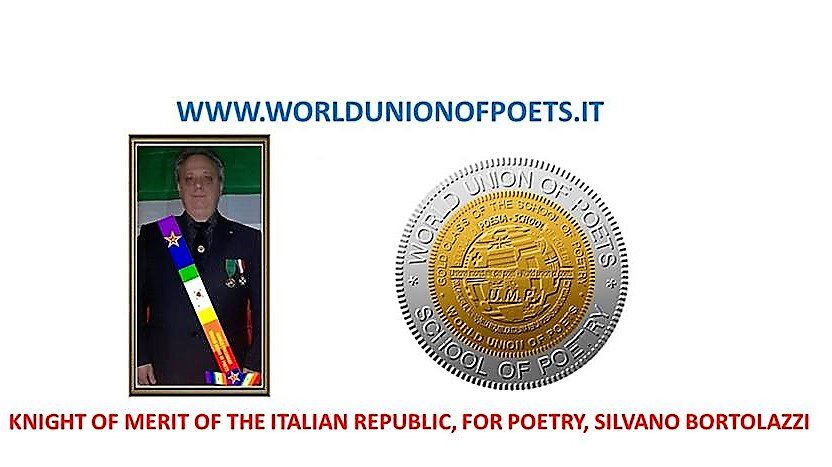
The Citation from School of Poetry – Gold Class, from Knt. Sir Silvano Bortolazzi stated:
“WORLD UNION OF POETS – WORLD PARLIAMENT OF LITERATURE”
*
GOLD CROSS OF SOCIETY OF THE WORLD UNION OF POETS
*
In Sestriere city (OLYMPIC CITY – Headquarters of the World Union of Poets, highest city on the sea level of Italy, 2035 meters on the sea level)
March 8, 2019
On behalf of the 767,771 members of the World Union of Poets
I CONFER TO: “INTERNATIONAL WOMEN’S DAY 2019” – POETIC ANTHOLOGY FOR THE DEFENSE OF WOMEN’S RIGHTS
*
“For having contributed to the defense of women’s rights through poetry on International media in the International Women’s Day 2019”
*
THE “GOLD CROSS OF SOCIETY OF THE WORLD UNION OF POETS” (1st medal of the World Union of Poets for the Social merits).
*
The Gold Cross of Society of the World Union of Poets is traditionally nicknamed, called and known, by the international newspapers, as “Double Gold Cross of Society of the World Union of Poets”
Signed: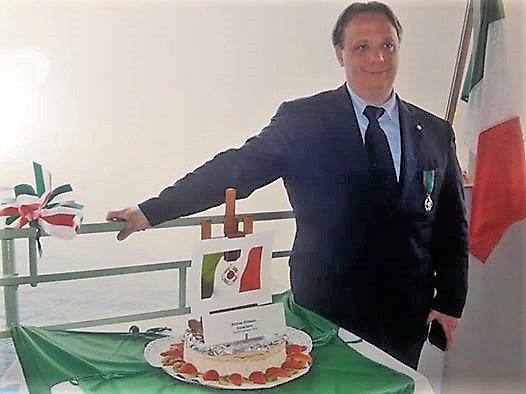
KNT. SIR SILVANO BORTOLAZZI – KNIGHT OF MERIT OF THE ITALIAN REPUBBLIC, FOR POETRY – HONORARY POET OF THE OLYMPIC CITY OF SESTRIERE (ISTITUTIONAL TITLE BY THE MAYOR OF SESTRIERE) – PROPOSED IN SIX OCCASIONS AS CANDIDATE TO THE NOBEL PRIZE IN LITERATURE AND PROPOSED IN TWO OCCASIONS AS CANDIDATE TO THE NOBEL PEACE PRIZE – FOUNDER PRESIDENT AND WORLD PRESIDENT OF THE WORLD UNION OF POETS AND OF THE WORLD PARLIAMENT OF LITERATURE.
Different Truths was chosen by an illustrious person, Knt. Sir Silvano Bortolazzi, whose name was proposed eight times for the Nobel Prize, “proposed in six occasions as candidate to the Nobel Prize in Literature and proposed in two occasions as candidate to the Nobel Peace Prize.”
A first award and that too from a person of Himalayan stature – what more could we ask for!
A first award and that too from a person of Himalayan stature – what more could we ask for!
We accept this coveted award with humility and responsibility.
There were celebrations in our newsrooms spread across the world. We were overwhelmed.
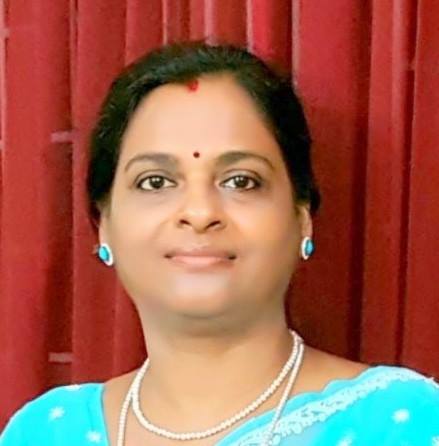 Rajashree Mohapatra, a poet-artist, from Bhubaneshwar – one of the participating poets of the anthology under reference – informed us, telephonically. Her ecstatic joy was infectious.
Rajashree Mohapatra, a poet-artist, from Bhubaneshwar – one of the participating poets of the anthology under reference – informed us, telephonically. Her ecstatic joy was infectious.
She had tagged us on the Facebook.
The visual was a pair of gold medallions and the theme logo of this year’s IWD 2019, in Different Truths. It was a part of the citation from Knt. Sir Silvano Bortolazzi.
Allow me a little flashback – a cinematic technique that’s part of the story telling these days.
This year, we weren’t quite prepared to come out with a special feature on International Women’s Day (IWD). We received a few articles. Anumita Chatterjee Roy, our Managing Editor, who stays in Columbus, OH, the US, is literally half-a-world away from me. After a quick chat on the phone, we decided not to give IWD a miss this year.
Time was against us.
Time was against us. There was no time for posting a prompt. I typed a curt two-liner and sent it to 24 women poets via WhatsApp or FB Messenger. Going by my hunches, I felt that even if a third of them, say eight to ten poets, send their poems, we will come out with a mini anthology.
The response from the women poets was cent percent. Not all of them saw the message at the same time. We received these poems between 20 minutes and two hours. The response was overwhelming.
No Schism between Poetry and Prose
I could hardly believe that I had proved that verses or prose could be composed or written, in a jiffy. In my mindscape there was no difference between these genres.
A student of English Literature, I had chosen to be a journalist, when my close 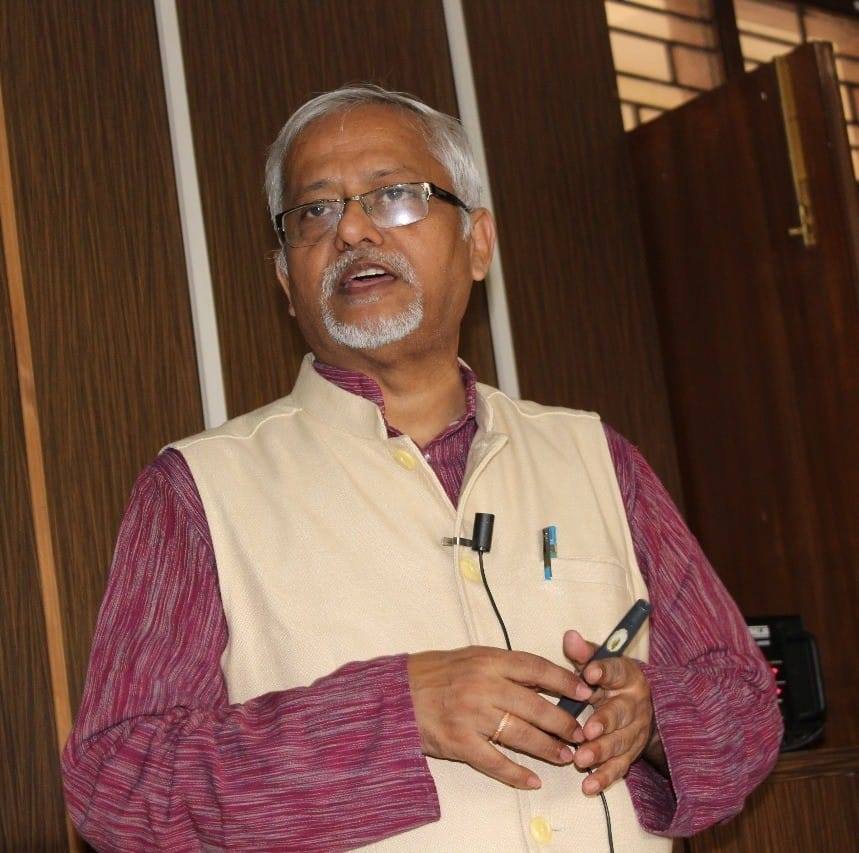 friends chose academia. Working for three and a half decades in various newsrooms, around the country, I ardently believed that journalism is not confined to prose. I discussed this with my clan, often to be laughed at.
friends chose academia. Working for three and a half decades in various newsrooms, around the country, I ardently believed that journalism is not confined to prose. I discussed this with my clan, often to be laughed at.
Several poets, women and men that I have interacted with, have convinced themselves that they are ‘pure poets’ and would never write a word of prose. They forget that some of the best poets in both the hemispheres wrote fantastic prose.
Up against these blocks, I told myself that one day I shall prove it (didn’t know how then).
Allow me a little digression. A little over a year back, on the occasion of Different Truths’ second anniversary (Nov 25, 2017), I wrote, “To us, a poet has chosen a different mode of expression. Thus, we have felicitated the poets, who have been contributing regularly and have composed meaningful verses during the year, with Social Journalism Award. They are rooted in the social realities and bring to the fore burning issues[i]” (italics mine).
What do I mean by journalism in prose or verse?
Oral traditions continue to co-exist with the newer forms of print, electronic and digital modes of communications.
All ancient civilisations (read living civilisations like India, China, etc) have a continuum of traditions. Oral traditions continue to co-exist with the newer forms of print, electronic and digital modes of communications. It might appear complex to some of us but it’s very simple.
Ancient Poet-Journalists
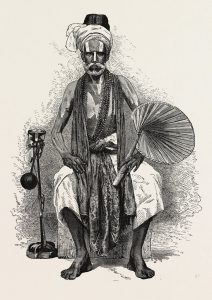 The roving mendicants, who moved on foot, camels or bullock carts, travelled from village to village, crossing cities and city-states. When they arrived at the village square (Chaupal in Hindi), they would ask the villagers gathered there what they would like to listen to – aap biti (my experiences) or jag biti (happenings around the world).
The roving mendicants, who moved on foot, camels or bullock carts, travelled from village to village, crossing cities and city-states. When they arrived at the village square (Chaupal in Hindi), they would ask the villagers gathered there what they would like to listen to – aap biti (my experiences) or jag biti (happenings around the world).
These early poet-journalists would recite and sing to their audiences. The narratives were predominantly in verse.
Somewhere down the line, with the growth of market economy, travelling through urbanisation, industrialisation, et al., we lost this tradition. We employed labours (read slaves in certain points of history). These migrant labourers, herded like animals in ghettos, helped the growth of the Capital. Few got rich at the cost of the many others.
In the exploitative production system, our roving mendicants lost their place in the society. They also lost their voices.
Meanwhile, our regimented education system ensured that we unlearn much, if not all, of the past. We are taught that verse and prose are entirely different forms. We turned a blind eye to the fact that in all literatures of the world, verse preceded prose.
We were fed and brainwashed into educated zombies…. We learnt to hide our obfuscating ignorance with degrees and certificates.
We were fed and brainwashed into educated zombies who parroted theories and technical terms. We learnt to hide our obfuscating ignorance with degrees and certificates. We, most often than not, forgot to question.
In hindsight, I see this anthology is a break from the planned and thought out 13 anthologies that we published in three years. Unwittingly, 24 women poets empirically prove that there no schism between prose and poetry.
I trust women in such experiments. They are multitaskers (read natural managers). They instinctively respond to many challenges of life. But this experiment wasn’t planned. It happened. Suddenly.
This anthology is a milestone for all others, and me, who serve the Muse.
Instant Poetry
After we received the prestigious award, one of the poets, Swapna Behra said, ‘It was rush poetry’, while Geethanjali Dilip exclaimed, ‘poems written in huff and puff’. I agreed with both.
We are slaves of time.
In an age automation and instant food – instant coffee in a minute, noodles in two minutes, oats in three minutes and three-course meals in 20 minutes – we are a generation in haste. We are constantly on the move. We are slaves of time.
I prefer to name this genre as ‘instant poetry’. Here’s what three women poets shared with me.
Gopa Bhattacharjee, dashed a poem while watching a cinema with her family, while Mandakini Bhattacherya composed it on her smart phone, while on a homeward bus from her degree college.
A third poet, Saumya Rajan, asked me to edit her poems with fault-finding eye as she had no time to revise. I had given impossible deadline.
Well, that’s what happens, I jocularly remarked, when you work with a hard-nosed editor. The deadline is yesterday – as we say in the newsrooms in black humour.
The story of the making of this anthology will be incomplete without sharing how this year’s theme logo for IWD took shape.
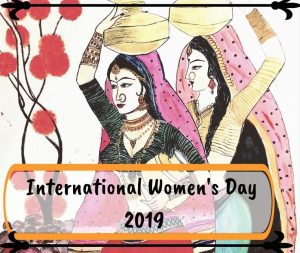
Theme Logo of IWD 2019
Working against time has its challenges. We have little time to explore and choose. Rather, we make the best of what we have.
I knew one of the poets, Rajashree, is also an artist. She paints. I asked her to send me some of her paintings. She exclaimed, “How can I paint in less than two hours? I have to send poems too…” I asked her to rummage through her old artworks.
She sent three paintings. The one Anumita chose, wasn’t mature. But it had a ring of innocence. “Two Rajasthani/Gujarati women balancing pots of water on their heads, speak of the hard toil and was in keeping with IWD 2019 theme – where the operative word ‘balance’.” She also told me that this painting reminded her of a powerful film, Water Wife.
We agreed on making it the theme logo.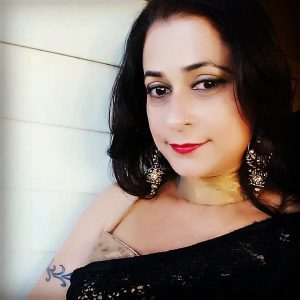
Later, when Double Gold Cross Medals to Different Truths were awarded, Rajashree told me that this was a painting from her past. She was a school girl in class tenth then. Her work wasn’t mature.
She was pleased as Punch to see that the theme logo (her painting) was inscribed in one of the gold medallions.
Anumita designed the Award Announcement in a blink of an eye. We have it on our Home page and all other posts’ pages.
Who said you can’t do the best, fast! The best works are produced under pressure.
The challenges are bigger. We need to swell in numbers. This is a call to the entire DTian family to invite their friends and family to like and follow the Different Truths Page on Facebook. Let’s network better. All of us will catch more eye balls.
I trust that together we can achieve many more milestones.
©Arindam Roy
Photo sourced in-house and from the Internet





 By
By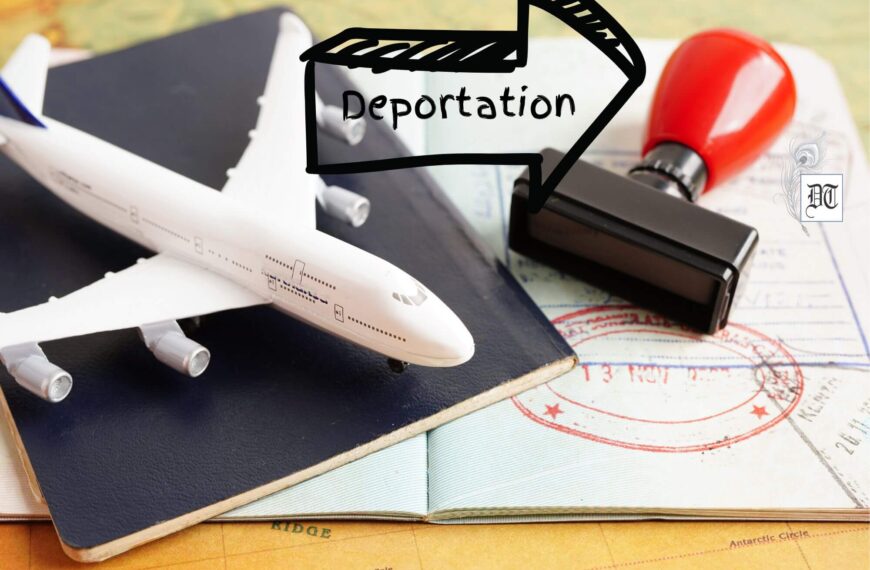

 By
By
 By
By
Kudos to the vision, visionary, , work, workers(poets in this case) and the spectacular outcome!!!
Many thanks, Rupa for your kind and gracious comment
A wholehearted elucidation.
Congratulations for this milestone. 🙂
Many thanks, Monika
Congratulations.
Proud to be a part of this
Indeed a great moment for all DTians. Yes, you are a part of this too, Soumya
Very interesting reading
All poems are good
Regards
Very well deserved!
Heartiest congratulations and may God speed, DT ❤